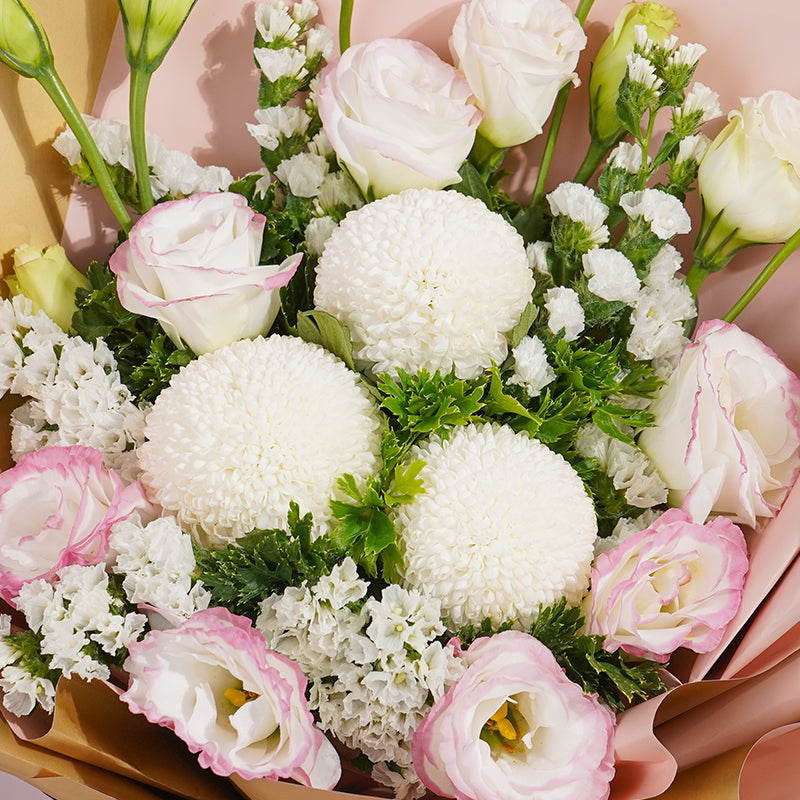Love comes in many forms, and expressing it doesn't always follow a one-size-fits-all script. In some parts of the world, celebrating love gets a unique twist with two special days: Valentine's Day and White Day. Let's dive into the history, traditions, and gift-giving ideas behind these two fascinating holidays.
Valentine's Day
Valentine's Day, celebrated on February 14th, is a familiar sight across the globe. It's a day dedicated to love, affection, and expressing appreciation for those special people in your life. The origins of this day are shrouded in some mystery, but it's believed to have evolved from ancient Roman festivals and the life of a Christian saint named Valentine.
Traditions of Valentine's Day:
Exchanging gifts: This is a popular tradition, with valentines flowers, chocolates, and romantic cards being the most common choices.
Romantic dinners: Couples often enjoy special meals together, creating lasting memories.
Expressing love and affection: This day is a time to tell your loved ones how much they mean to you, whether through words, gestures, or gifts.
Cultural Variations:
While the core themes of love and affection remain, Valentine's Day traditions differ across cultures. In some countries, it's primarily a romantic celebration, while others celebrate love in all its forms, including love for family and friends.
White Day
Exactly one month after Valentine's Day, on March 14th, something unique unfolds in countries like Japan, South Korea, and Taiwan: White Day. This day is seen as a response to Valentine's Day, offering men a chance to reciprocate the gestures they received from women.
The History of White Day
White Day is a relatively young tradition, originating in Japan in the 1970s. It's believed to have started as a marketing campaign by a marshmallow company, but it quickly gained popularity and became ingrained in the cultural calendar.
Traditions of White Day
-
Gift-giving: Unlike Valentine's Day, men traditionally give gifts to those who gave them something on February 14th.
-
The meaning of the gifts: The type of gift carries meaning. White chocolate, cookies, and jewelry are popular choices, symbolizing purity and sweetness.
-
Reciprocating based on the Valentine's Day gift: The value or type of gift given on White Day can reflect the value or meaning of the gift received on Valentine's Day. For example, a man might respond to a handmade gift with a more personalized present.
Cultural Variations
White Day traditions vary slightly across countries. While Japan emphasizes the importance of reciprocating gifts based on their value, South Korea may place more emphasis on the meaning and thoughtfulness behind the gift.
Modern-Day Twists on Love
While the traditions surrounding Valentine's Day and White Day are interesting, it's important to remember that love doesn't need a specific day to be celebrated. These days are just two ways to express affection, and how you choose to celebrate, if at all, is entirely up to you.
Modern-day trends are shaping how people approach these holidays:
-
Breaking the Mold: Both men and women are increasingly giving gifts to each other on both days, challenging traditional gender roles.
-
Focus on Experiences: Some people are opting for shared experiences like going on dates or participating in activities together instead of exchanging gifts.
-
Celebrating Self-Love: The rise of self-love movements encourages individuals to celebrate themselves and appreciate all aspects of their lives, expanding the definition of love beyond romantic relationships.
Gift Ideas for Every Occasion:
Finding the perfect gift for any occasion can be tricky, but here are some ideas to inspire you:
For the romantics:
-
Personalized gifts: a framed photo, a piece of jewelry with initials, or a handwritten love letter can add a special touch.
-
Experiences: Tickets to a concert, a weekend getaway, or a cooking class can create lasting memories.
-
Gifts that cater to their interests: Whether it's a book related to their hobby or tickets to a sporting event, a thoughtful gift shows you pay attention to their passions.
For friends and family:
-
Homemade treats: Baking cookies or cooking a meal shows you put in the effort and care.
-
Gifts that celebrate their individuality: Think about their hobbies, interests, or style when choosing a gift.
-
Acts of service: Offering to help them with a chore, running errands, or simply spending quality time together can be just as meaningful as a material gift.
Making the Most of Each Day
While gift-giving is a common thread in both Valentine's Day and White Day, it's important to remember that the true essence of these days lies in expressing your love and appreciation. Here are some ways to make the most of each day, regardless of whether you choose to exchange gifts:
For Valentine's Day:
Plan a date night: Whether it's a fancy dinner, a picnic in the park, or a cozy movie night at home, create a special evening together.
Write a heartfelt letter or poem: Expressing your feelings through words can be incredibly romantic and personal.
Do something thoughtful: Offer to help with chores, cook their favorite meal, or simply give them a massage.
For White Day (or any day!):
Express gratitude: Take the time to tell them how much you appreciate them and what they mean to you.
Do something unexpected: Surprise them with breakfast in bed, a handwritten note left somewhere they'll find it, or a small gesture that shows you care.
Spend quality time together: Whether it's going for a walk, watching a movie, or simply having a conversation, focus on enjoying each other's company.
Ultimately, Valentine's Day and White Day are just two days on the calendar. Remember, the most important thing is to express your love and appreciation for the people in your life in a way that feels genuine and meaningful to you and them.
Best Rated Florist in Malaysia
4.6/5.0 Based On 9038 Reviews
![whatsapp icon]() Click here to WhatsApp us! (9am - 6pm, Mon-Sun)
Click here to WhatsApp us! (9am - 6pm, Mon-Sun)













































